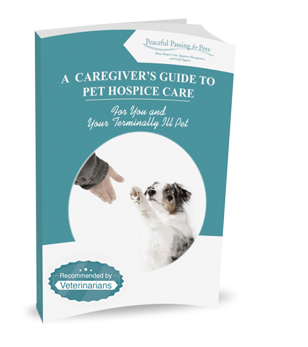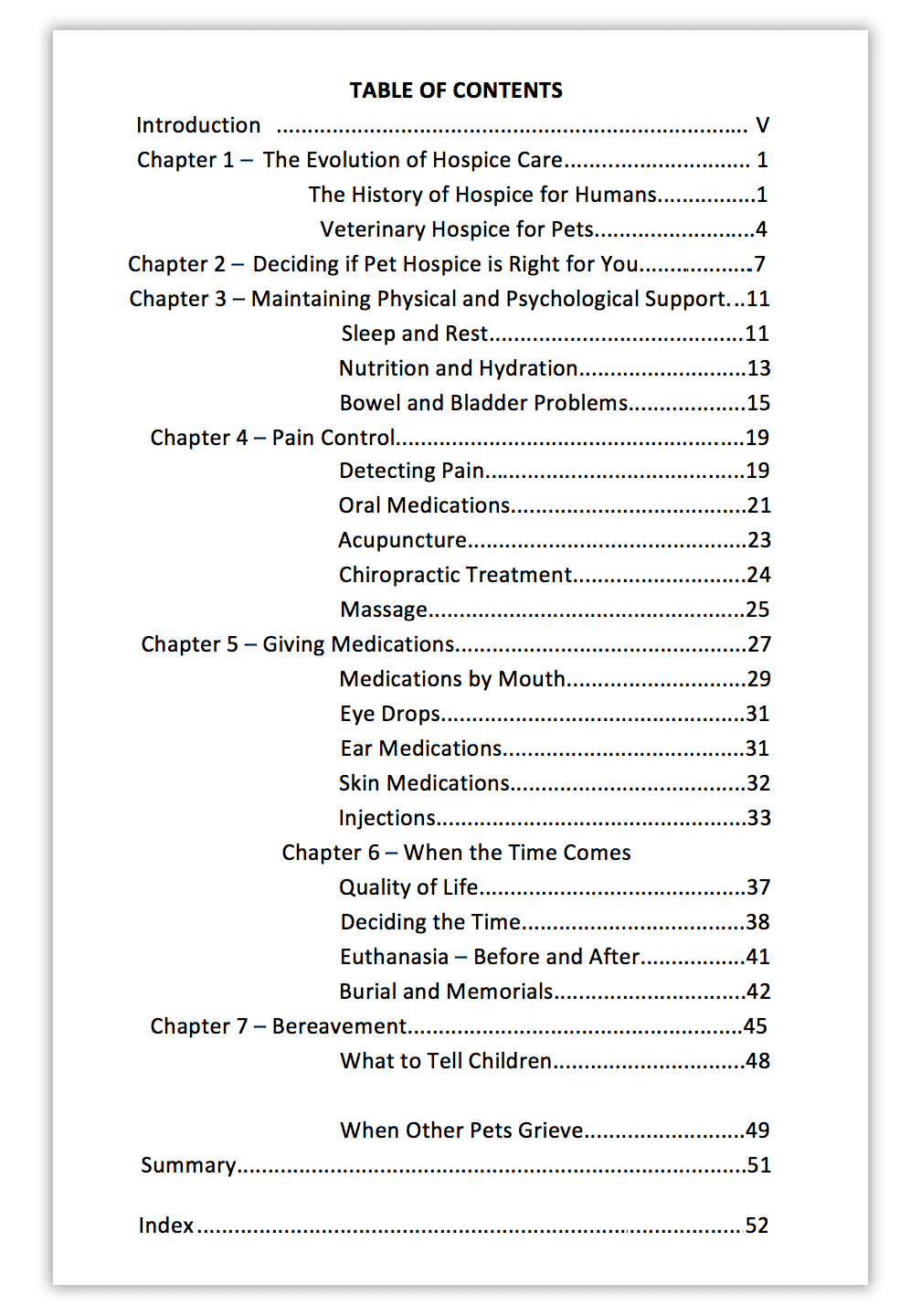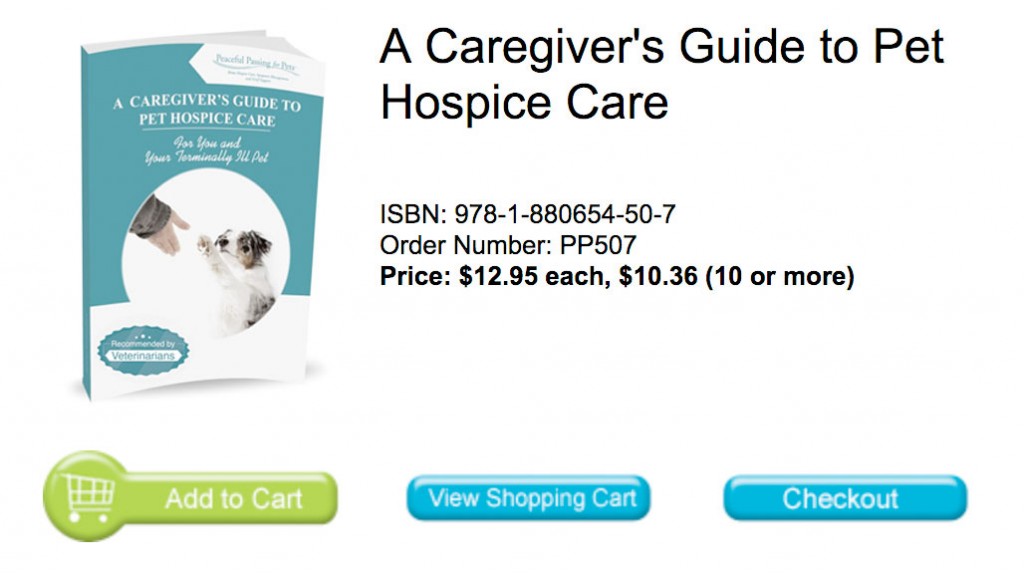PEACEFUL PASSING FOR PETS : A CAREGIVER’S GUIDE TO PET HOSPICE CARE
Available Now:
on Amazon
Providing care to a pet that is seriously ill can be overwhelming and exhausting at times. Peaceful Passing for Pets considers teaching, supporting, and training primary caregivers an essential part of our mission.
A Caregiver’s Guide to Pet Hospice Care is a resource guide designed with the caregiver in mind to help pet owners and family provide comfort care to pets that have a terminal diagnosis. The focus is on preventing suffering of the pet and empowering the pet owner as they provide care.
This guidebook provides the confidence to understand common symptoms including management of pain, nausea, anxiety, agitation and restlessness. Additionally, it gives clear instructions on how to manage those symptoms. Finally, it encourages caregivers to ask questions of the hospice team when help is needed.
Tools are included in the Index to help evaluate your pet’s quality of life, pain status and monitoring of medications:

Reviews:
“Grateful. Wow. This is a real gift to those of us who are loving and supporting our beloved furry family members through the last part of their lives. As a Chaplain, I hear many peoples stories about struggling alone with questions and fears. This amazing resource brings hope and help and comfort. It’s accessible and full of heart.” – The Rev. Mary Piper, Chaplain
“We love them so much, we want tender loving care for our pets through all stages of life, including near the end. Having choices in care is empowering and provides the best opportunity for comfort, dignity, and peace for all members of the family, two-legged and otherwise. Palliative care and hospice are the right choices for many families when their pets become ill. This long-awaited resource provides much needed help for the caregivers and, through them, the pets they love.” – Michael Henson, DVM, PhD, DACVIM
“This is an informative book that covers all aspects of what veterinary hospice means, including the physical, emotional, and psychological needs of the pet owner and their pet. It is a valuable resource for those who are dealing with end of life choices for their beloved companion.” – Ann Fischer, DVM


